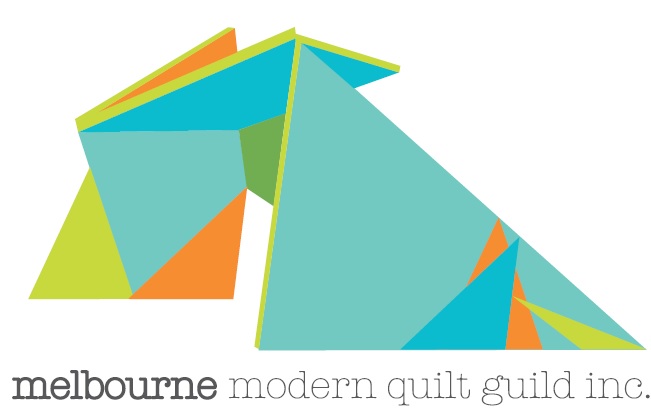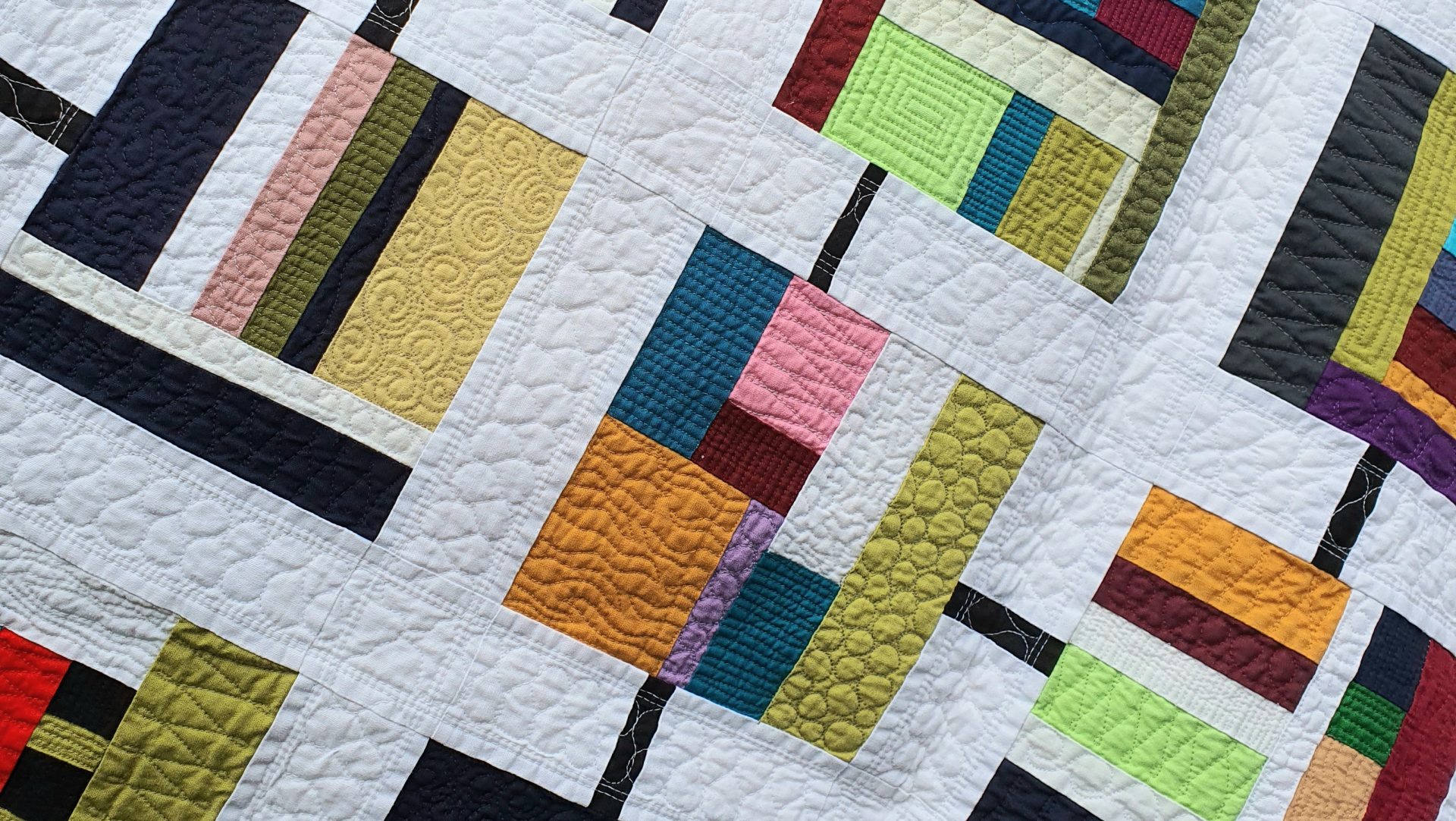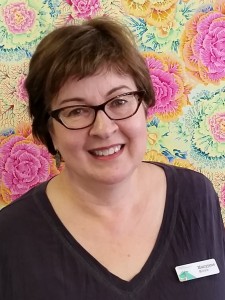It’s official! Quilting is good for your health. That’s the finding of MMQG Inc. member MJ Morris in her thesis “Crafting well-being: A qualitative study on the therapeutic value of quilting and women’s quilting groups”.
Founding MMQG member MJ Morris has just completed her Graduate Diploma in Psychology at the Cairnmillar Institute, and her studies required her to complete a research project on a topic of personal interest and therapeutic relevance. In consultation with her supervisor (herself an art therapist and quilter) MJ decided to explore why quilting is good for your mental health, and what impact being in a quilting group has on wellbeing.
To get to the heart of her subject matter, MJ chose a qualitative approach and asked participants to tell their stories, which she then observed and analysed.
When MJ commenced this study she found that, despite the considerable investment in the community on quilting, there was surprisingly little previous research on this subject. While there has been quite a lot of research about the benefits of art therapy in general, there was very little related to textile crafts. Some anecdotal accounts of quilting benefits exist, for example after the events of 9/11 many quilters coped with their trauma through quilting https://www.911memorial.org/tribute/ame … ts-project. Another well-known example of quilting as therapy was the enormous AIDS quilt where people honoured individual AIDS victims by creation of a quilt http://www.aidsquilt.org/about/the-aids-memorial-quilt. There has also been research conducted with specific populations like the Amish, where quilting is part of their community, both in economic terms, and by the passing of skills from generation to generation.
MJ undertook her research by recruiting local volunteers, and interviewed five participants who were motivated to tell their story at length. In each case, she came across powerful stories of how quilting and participating in quilting groups had been important in helping women navigate life transitions and challenges. One particularly poignant story was of Camille, whose husband was terminally ill. Camille’s husband insisted she go and join her quilting group regularly, because it took her out of “the house of illness” and allowed her a space to recover and heal, ready to return to her caring role. Although Camille initially felt guilty in going, her weekly quilting group became a life saver for her because she could go out and replenish her spirit with creativity and friendship. Her sewing friends willingly took on the role of care giver by listening to and supporting her during this terrible time, and Camille came to regard them as surrogate family. Once her husband passed away, she had the continuity and support of returning to her special group as she grieved.
In her research MJ found two types of benefits – those of the quilting itself, and those of being part of a quilting group.
The benefits of quilting as an activity include its tactile simulation – we all love the feel and the smell of fabric, the range of colours we can choose from, the act of being creative and making something worthwhile, the pleasure of skill acquisition, of practicing mindfulness and having a hobby which creates some blissful ‘time out’ in our day.
Within a quilting group, there are the added benefits of engaging in problem solving, creative collaboration and support, and the sharing of ideas. Aside from the quilting, the group provides a forum to bring non-quilting related problems and concerns to the group. A quilting group can also provide a sense of identity, of belonging to a group, and having your own voice or style within that group. MJ’s findings were consistently positive about these benefits, the only downside being the cost of participating in quilting, and the occasional clash of personalities within groups.
Congratulations to MJ on completion of her thesis, which is an important research project in this field.


